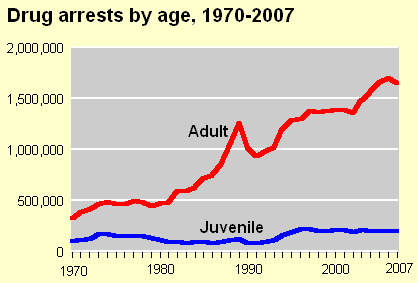Michael Vick, Barack Obama, and the ‘War on Drugs’
First allow me to stipulate that I believe that sending Michael Vick to prison for even one day for dogfighting was a travesty. Many dog lovers are likely to find it impossible to read another word of this post. I understand. I am consistent about the fact that I do not think that prison solves anything rather incarceration is always harmful and counter-productive.
I read today that according to Peter King (sportswriter) President Obama reached out to the Eagles’ owner, Jeff Lurie, to thank him for giving Michael Vick a second chance after his incarceration:
King tweeted last night that “Obama called Eagle owner Jeffrey Lurie to praise the Eagles for giving Vick a chance. Said too many prisoners never get fair 2d chance.”
It is heartening to see the President acknowledge the importance of “second chances” for former prisoners. Yet here’s the rub of this for me. I would prefer it if President Obama and Attorney General Holder would start to dismantle the prison industrial complex as a whole. President Obama has it within his executive power to make several changes that would dramatically decrease the numbers of people who are incarcerated every year in the U.S. He can start by ending the detrimental and destructive “War on Drugs.”
Over the weekend, the New York Times reported that the U.S. “War on Drugs” is being fought in over 60 countries. The WikiLeaks cables paint a scary picture of a ubiquitous and hegemonic U.S. Drug Enforcement Administration:
The Drug Enforcement Administration has been transformed into a global intelligence organization with a reach that extends far beyond narcotics, and an eavesdropping operation so expansive it has to fend off foreign politicians who want to use it against their political enemies, according to secret diplomatic cables.
The reach of the DEA is illustrated by the fact that the agency “now has 87 offices in 63 countries and close partnerships with governments that keep the Central Intelligence Agency at arm’s length.”
The costs of this so-called drug war are immeasurable in terms of human suffering. There are other costs that are more quantifiable and those are addressed in the infographic below:
A few weeks ago, Michelle Alexander published an essay in the Nation titled “Obama's Drug War.” In it, she addresses the realities and consequences of the current ‘War on Drugs’:
More than 30 million people have been arrested since 1982, when President Reagan turned Nixon’s rhetorical “war against drugs” into a literal war against poor people of color. During the past few decades, African-American men, in particular, have been arrested at stunning rates, primarily for nonviolent, relatively minor drug offenses—despite data indicating that people of all races use and sell drugs at remarkably similar rates.
In some states, 80 to 90 percent of all drug offenders admitted to prison have been African-American, and when released they find themselves ushered into a parallel universe where they are stripped of many of the rights supposedly won during the civil rights movement. People labeled felons are often denied the right to vote and legally discriminated against in employment, housing, access to education and public benefits—relegated to a second-class status for life simply because they were once caught with drugs.
The following chart provides a visual representation of the number of drug arrests in the U.S. over time.

I have previously written about how drug use was handled in the U.S. from the 1930s through the mid-1970s. This was not ideal but it did not criminalize millions of Americans in the way that the current War on Drugs has.
For those interested in ideas about how to reform the current system, the Nation recently published an excellent special issue about how to rebalance U.S. drug policy.
President Obama needs to eschew symbolic gestures like the phone call to Jeff Lurie. He needs to permanently free millions of Americans of all races from the scourge that is the U.S. Drug War. This momentum is difficult to turn back, I know. I agree with Michelle Alexander that it is going to take a mass multi-racial movement to change the current trajectory. In other words, we have to MAKE the politicians do the right thing.

